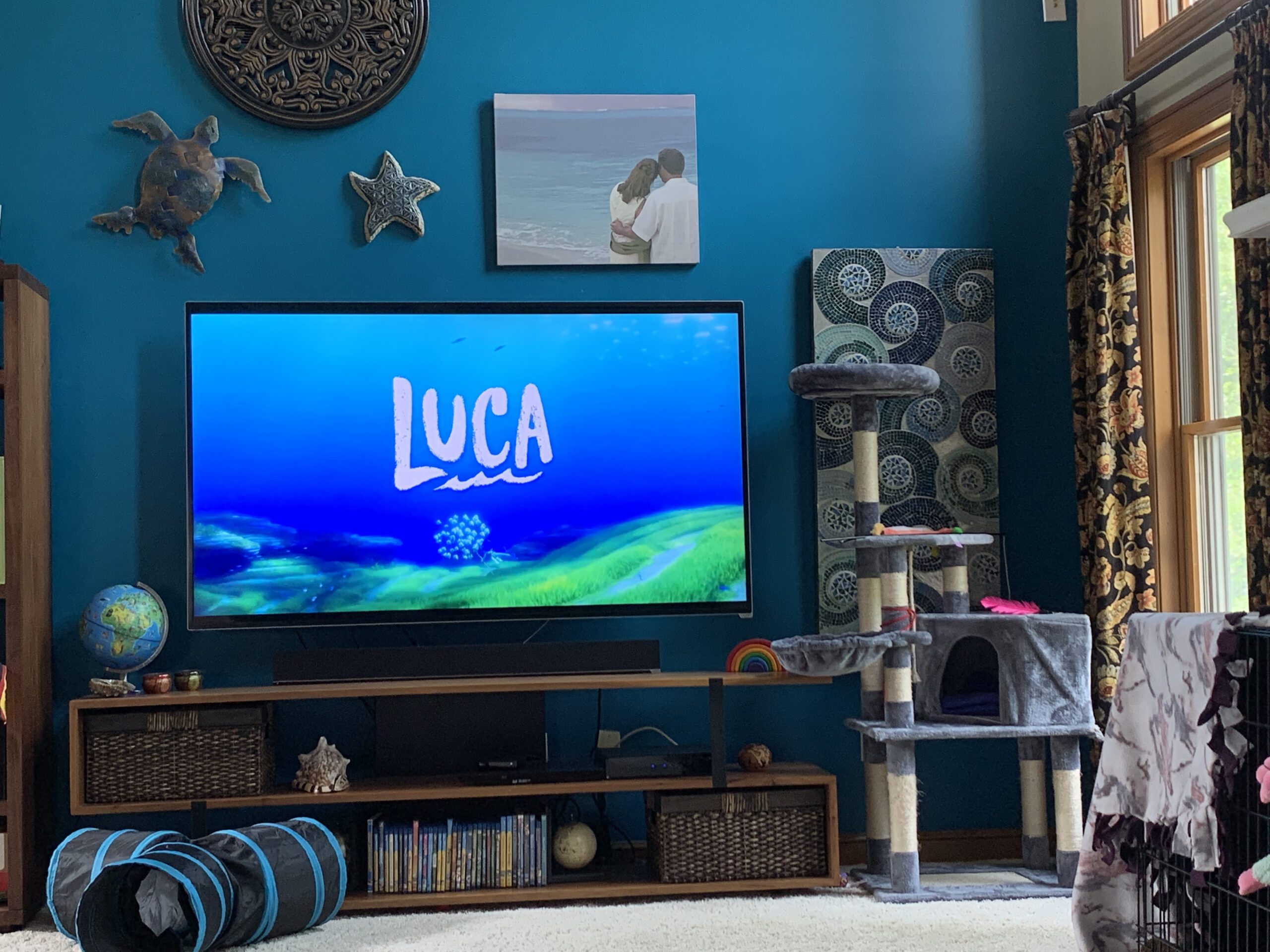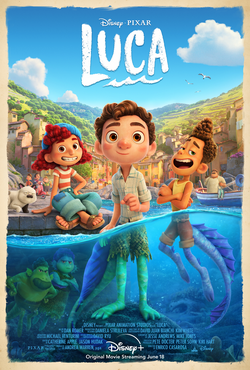If you haven’t seen the latest Disney PIXAR animated film, Luca, our family highly recommends it.
Following in Disney’s long-standing tradition of great movies that can be enjoyed by kids and adults alike, Luca is a delight for all ages.
The plot truly sounds implausible: it’s a coming-of-age tale about young sea monsters set in 1950s Italy. And not all critics loved it.
But we felt that Luca draws you in right away with characters who are charming and realistic. While the beginning reminded me a lot of Ariel and the Little Mermaid, Luca soon takes off in its own unique direction.
Here are our three favorite lessons from the movie Luca:
1. Parents, don’t be too controlling! Luca’s mom is very loving, yet attempts to keep the tightest of controls on poor Luca. He’s a good kid – he doesn’t need to be held that tightly. She learns throughout the course of the movie that she was wrong to try to hold him back. Her worst error, for me, was when she tried to send Luca away with his awful uncle to the dark depths of the ocean just to keep her boy safe from the surface. That caused Luca to run away – and that’s exactly what can happen anytime we parents hold on too tightly to our growing kiddos. Like Glennon Doyle says, you can either love or you can control, but you can’t do both.
2. It’s good to have many different kinds of friends. Friendship is a big theme in this movie. I love Luca and Alberto’s friendship and how it is based on shared dreams, similar backgrounds and a love of building things, going on adventures and dreaming about Vespas. But Luca’s budding friendship with the fiery Giulia is also super sweet, and it’s based on intellectual curiosity and seems to be more a true friendship of equals. We also see examples of how not to be a friend – like the town hero/bully, who appears to treat his friends (or followers?) horribly.
2. Silenzio, Bruno! My favorite lesson of all from Luca is how to silence the negative or fearful voices in our own heads. We all have them – inner critics that can stop us from having fun, taking healthy risks or stepping out of our comfort zone. In the movie, the character Alberto shares with Luca his method for silencing that voice in his head, which he happens to have named Bruno. He tells Luka that he can name his inner voice anything he wants, but Luca adopts the same phrase: Silenzio, Bruno! I’ve been using it ever since and I can tell you this actually works. It always puts a smile on my face and makes me feel more confident.
One additional interesting insight about the movie Luca is one I read about in a Facebook group for parents of trans kiddos. I was astounded when I first read it, but the more I think about the movie, the more I can see this as true. I’ll share this perspective here:
The new Disney/Pixar movie Luca is a beautiful statement about LGBTQ, especially transgender, kids. We have already watched it so many times and keep finding more symbolism and meaning in various lines.
Here are some additional notes from the same source. Be sure not to read these until you’ve seen Luca, as there are some spoilers below:
- Massimo, which means “the great one,” is Giulia’s father and is the one who ultimately steps forward and says it’s okay to accept the boys as they are and not to be afraid. He is missing an arm which is scary to the kids at first and makes him intimidating to others. Massimo takes pains to point out that his arm was not lost as one would assume, by reckless behavior, but he “came into the world this way.” With this understanding of nature, he eventually is the hero and leads the way to community acceptance. His arm, the camera focus on it throughout, and the scene where he explains it are significant.
- The phraseology used in the film about changing from sea monster to human is not expressed just in terms of danger, but in moral terms: if you do that you’re “bad.” Luca, when he first transforms, is worried and says, “But I’m a good kid.” When you watch again, listen to how it’s discussed: Alberto’s father abandons/disowns him and he thinks there’s something wrong with him, he’s worthless as a result, and the words used to tell him he’s just great as he is. The parents’ threat of sending Luca to the bottom of the ocean for the summer represents conversion therapy camp, and rather than being sent somewhere to be forced to be something he’s not, he rebels and runs away because he knows who he truly is.
- When Luca becomes himself the first few times, it is demonstrated in long, over-the-top euphoric and metaphoric scenes of flying in the sky with the emotional music. The film takes great pains to stop and focus whenever he becomes “himself” and then expresses the feeling in the most idyllic, euphoric way possible – compare to The Little Mermaid. That was for a reason. The grandmother has been in the closet but comes out when Luca does and encourages him to be who he really is.
- The ultimate betrayal is the scene when Luca fails to be an ally to Alberto when he is caught; Luca really regrets that decision. When Luca expresses who he really is, his parents and others tell him “but I know what’s best for you.” When Luca decides to stay as how he really identifies, we hear the line: “Some people, they’ll never accept him. but some will and he seems to find the good ones.” Some of these may seem unimportant in isolation but it’s the language and imagery selected throughout.
What do you think – did you notice this type of allegorical meaning running throughout Luca? One thing is for sure, there are more good people than bad and all of life is about trying to surround ourselves with – and be – the good ones.
If you haven’t seen Luca yet, I hope you’ll watch it and let me know what you think!




